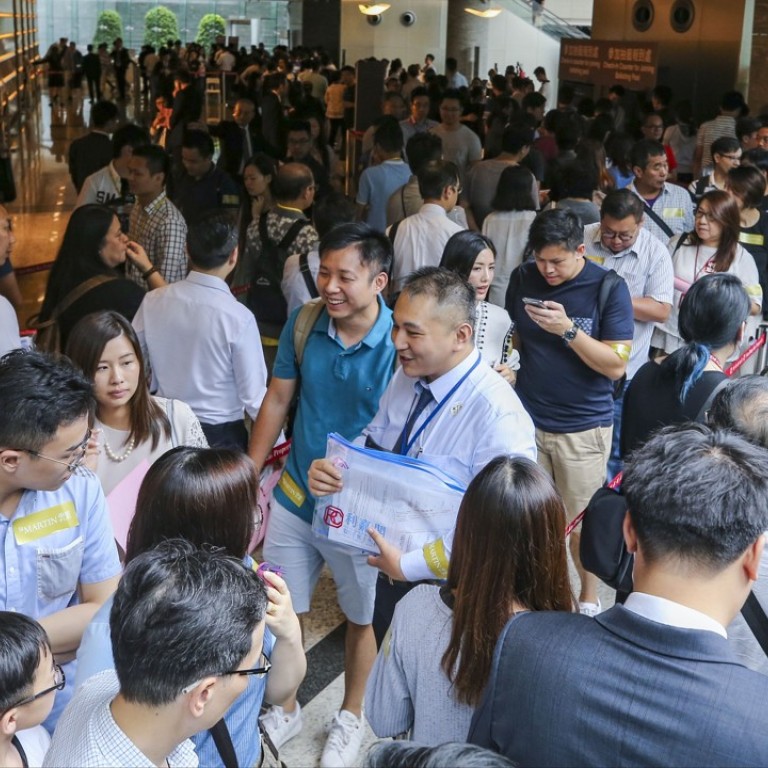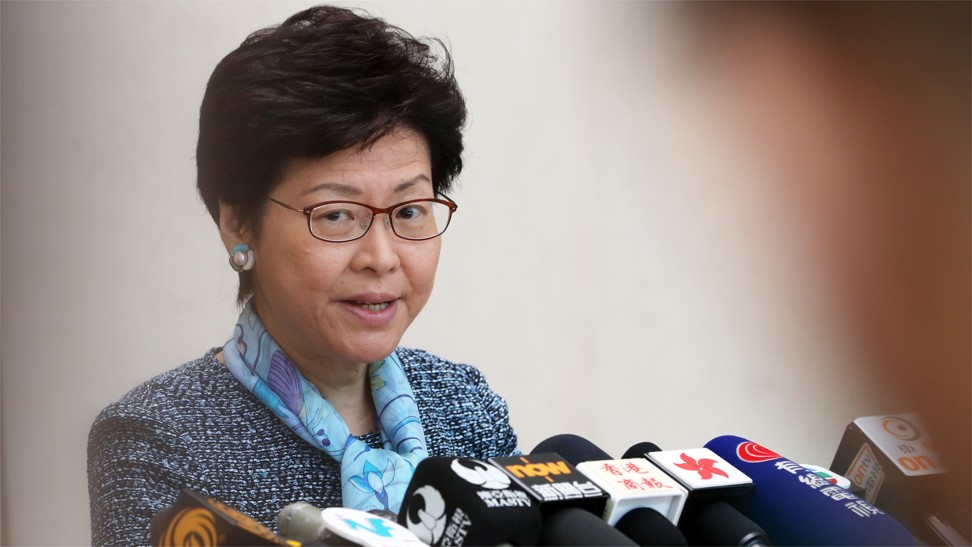
Exclusive | Looming vacancy tax is prying long-held flats from Hong Kong developers who kept them locked away for future appreciation riches
Developers have sold 1,677 empty flats – some luxury ones held empty for more than a decade – in a scramble to avoid paying a big penalty. That is 12 per cent of all flats sold in a 10-week period
Hong Kong’s tax on empty flats appears to be working.
The city’s cash-rich developers had hoarded more than 9,000 new flats as of June 29, according to government data, when the vacancy tax was first proposed. Some of the flats had been held for more than a decade. The developers rightly assumed the prices would shoot up through the stratosphere if the flats were held and later sold as new.
But in just over two months, facing the threat of a humongous tax bill for hoarding that is blamed in part for why Hong Kong is the least affordable place on the planet to buy a home, they scrambled and sold about 1,677 of those flats.
That’s a lot of flats.
Between July 1 and September 19, 13,570 flats were sold in the city, a figure that includes resold flats and flats under construction but available for purchase. That means about 12 per cent of the total sold flats had been hoarded properties.
The threat of the tax, proposed by Chief Executive Carrie Lam Cheng Yuet-ngor and expected to be passed by the Legislative Council next year, also appears to be pushing developers not to hoard properties still being built but eligible to be sold.
For example, the city’s largest property developer, Sun Hung Kai Properties, sold US$3.44 billion of residences in just 10 weeks ending September 13 – two-thirds of its sales target for all of 2018.
“The government wants developers to sell flats fast, and we also want to launch more [units on the market]. So it is our strategy and also our response to the government’s policy,” Raymond Kwok Ping-luen, the chairman and managing director of SHKP, said on September 13 when announcing the company’s full-year core profits.

To tackle this, she has gone after the supply side of the shortage, evidenced by the long queues of hopeful buyers who enter developers’ lotteries for the mere shot at buying expensive, often cramped flats.
“Getting a lucky lottery number is harder than buying a flat itself,” said a woman who only gave her name as Chu. She finally bought an HK$8 million flat last year in her fifth lottery, after securing a lucky ticket.
In taking aim at the city’s housing problem, Lam has been lucky.
Signs are growing that the 15-year housing bull run in Hong Kong home values may be tiring out. A rise in borrowing rates has prompted a number of analysts to predict a 10 per cent or greater fall in home prices in the city.
That negative sentiment is growing.
Developers are cutting deals – and prices – on new flats. Some owners are reselling their flats at below bank valuations to unload them quickly because of a feared drop in prices.
Meanwhile, the Centaline Centa-City Leading Index, a gauge of the secondary housing market, slipped by 0.23 per cent to 186.6 for the week ended September 16, a second consecutive weekly drop that means prices are down nearly 1 per cent in two weeks and signalling that even in Hong Kong prices cannot go in one direction forever.
Lam’s vacancy tax – akin to ones tried in other cities such as Vancouver and Paris – targets all newly completed flats left empty for six months in a year. Flats are considered finished one year after the developer obtains an occupation permit.
The proposed tax would be equivalent to two years of rental income, calculated by government specialists and based on market rates.
So if a new 500 square-foot flat could be rented out for HK$40,000 (US$5,130) a month, its rateable value would be HK$480,000. Tthe vacancy tax per year would then be HK$960,000 (US$122,380). In addition, the developer has to pay a “government rate” of 5 per cent annually on what it could have been rented for – or HK$24,000 (US$3,059). So the total bill would be HK$984,000 (US$126,153). Previously, the developer holding onto the flat would have faced only the HK$24,000 fee. That is a difference of more than 4,000 per cent.
The vacancy tax targets developers, and does not apply to properties in the secondary market.
Without doubt, Hong Kong developers are cash rich: the top five players hold a total cash reserve of HK$183 billion (US$23 billion). But even they would feel the pinch of a vacancy tax.
Up to now, developers have been able to comfortably hold flats, not unlike a collector might have a cellar full of rare Bordeaux or a garage packed with vintage convertible Jaguars.
For example, SHKP’s 825-flat luxury development, The Cullinan at West Kowloon MTR station, first went on sale in 2007. However, the developer is still holding 60 of the most luxurious units, which have soared in value, in the project’s two towers.
Prices for a 963 sq ft flat on the 80th floor of the second tower first sold for HK$32 million, or about HK$33,209 per square foot. Recently, a 1,481 sq ft flat on the 85th floor in the first tower sold for HK$110 million, or HK$74,722 per square foot, setting a record in the project after the flat had been held for 11 years.
The real estate community denies it is hoarding flats. Developers also said they were holding only 3,000 empty flats, not the 9,000 the government said.
“We are penalised because we cannot find buyers. Is that reasonable?” asked Stewart Leung Chi-kin, the chairman of Wheelock Properties who also chairs the executive committee of the Real Estate Developers Association.
To skirt the coming tax, some developers have started leasing unsold flats to executives or companies to get them off the vacancy list – a loophole the Legislative Council intends to plug.
Nan Fung Development, for example, leased out two completed duplex apartments and two villas at Deep Water Bay to four companies controlled by its senior management.
Adding to Lam’s challenge is a market distortion in this city of 7.3 million people: it is actually easier to buy a new flat than a previously owned one because developers offer incentives such as higher mortgage-to-price ratios for flats at new housing estates compared to what banks charge for mortgages on lived-in homes.
That means people will stand in line for new flats, while old ones, which may in fact be comparatively less costly, scare away prospective buyers who cannot afford a traditional bank mortgage.
The vacancy tax is only one arrow in Lam’s quiver. She is ordering subsidised flats be nearly 50 per cent cheaper for young couples and middle-class families. She also wants some land earmarked for private housing reallocated for public flats.
No one expects the vacancy tax to solve the city’s housing problems. But signs abound that it is at least unlocking supply, as Lam had hoped. And whatever the total, developers still have about 7,400 flats facing the vacancy tax that they could release.
“It has forced the sale of housing stock,” said Lung Siu-fung, an analyst at China Merchants Securities International. “But it can only cause a one-off surge [in flat launches]. The effect will last until developers run out of stock at the end of the year.”


